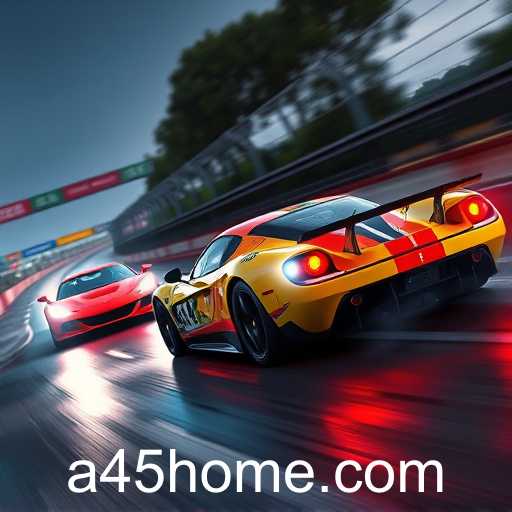Racing games have come a long way since their inception in the early days of video gaming. From the simple, pixelated graphics of the 1970s and 80s to the hyper-realistic simulations of today, racing games have continually evolved to provide players with thrilling experiences. As one of the most popular game categories on several websites, including those utilizing the keyword 'a45', racing games capture the imagination of gamers with a need for speed.
The journey of racing games began in the arcades, with titles like 'Speed Race' and 'Night Driver' setting the pace. These early games, though rudimentary by today's standards, introduced players to the concept of racing against time and competitors on virtual tracks. With the advent of home gaming consoles, racing games like 'Pole Position' became a household name, offering a more immersive experience with improved graphics and sound.
As technology advanced, so did racing games. The 1990s and early 2000s saw the introduction of iconic titles like 'Gran Turismo' and 'Need for Speed', which raised the bar with their sophisticated graphics, varied car models, and expansive tracks. These games offered players a new level of realism and customization, allowing them to tweak car settings and upgrade features to enhance their performance.
The present era of racing games is defined by ultra-realistic simulations made possible by cutting-edge technology. Titles such as 'Forza Motorsport' and 'Project CARS' are celebrated for their lifelike graphics, intricate details, and realistic physics engines that mimic the nuances of real-world racing. These games often feature a wide range of car brands and models, allowing enthusiasts to drive dream cars from renowned manufacturers in meticulously recreated environments.
Moreover, the rise of online multiplayer has added a social dimension to racing games, allowing players to compete with others globally, participate in tournaments, and join racing communities. This connectivity has transformed racing games into a social experience, where players not only race against the game but also against real-world competitors.
As technology continues to evolve, the future of racing games promises even more advanced features, including virtual reality experiences and augmented reality enhancements. These innovations aim to blur the line between the virtual tracks and the real world, offering gamers unprecedented levels of immersion.
In conclusion, racing games remain a dynamic and exciting genre in the gaming world. With their continuous evolution and technological advancements, they promise to provide players with ever-more exhilarating and realistic racing experiences. Whether you're a casual gamer interested in a quick race or a dedicated enthusiast seeking the thrill of competitive racing, there's no doubt that racing games will continue to capture the hearts of speed-loving gamers everywhere.








